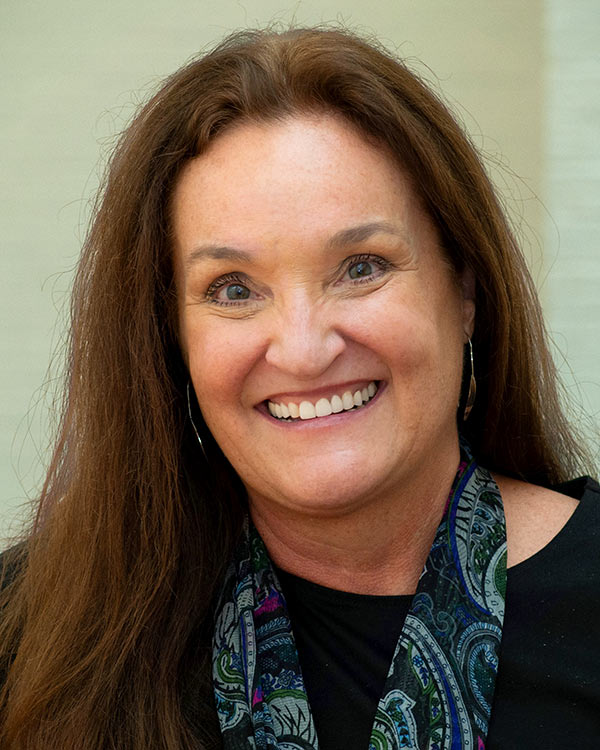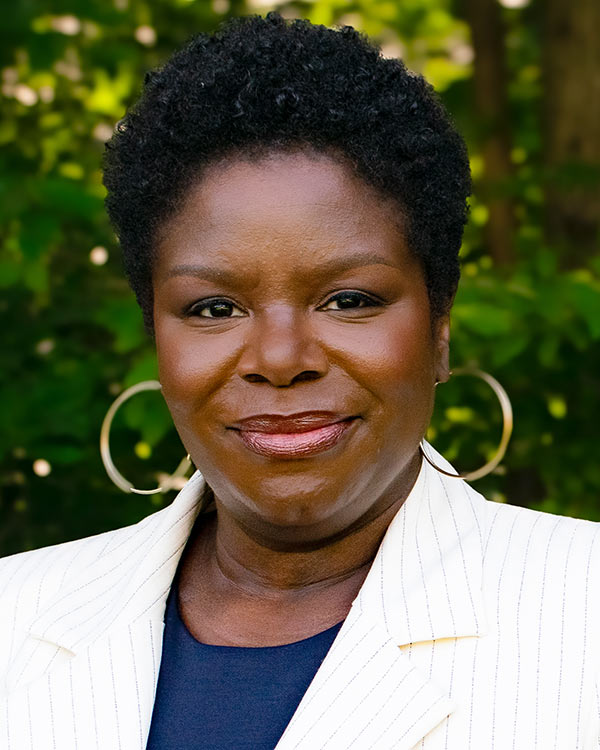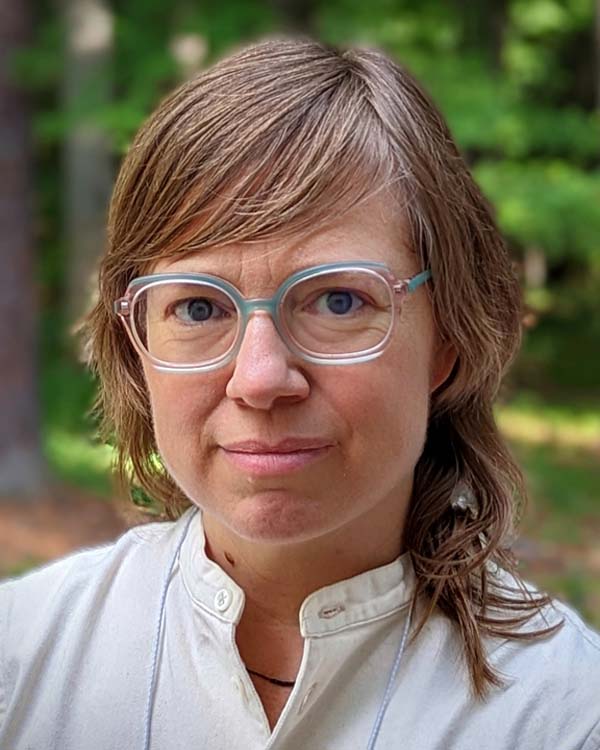Heidi N. Camp, Vice President for Institutional Advancement
Before shifting her career to higher education, Heidi engaged in healthcare management and strategic planning, including multi-physician clinic management, hospital marketing and communications, and healthcare advertising. She managed a national network of independent consultants, as well as founded and managed Strategic Healthcare Innovations, a multi-state strategic planning consulting firm with healthcare agency and hospital management company clients in 28 states.

Sangeeta Desai, Vice President for Knowledge Management and Digital Services
Sangeeta earned a Master’s degree in information and library science from the University of North Carolina at Chapel Hill. She also holds a PhD in the languages and cultures of Asia as well as an MA in South Asian languages, literatures, and linguistics from the University of Wisconsin-Madison and a BA in English literature from the University of Pittsburgh.

Blair LM Kelley, President and Director
In her scholarly work, Blair has offered profound insights into the lives of working-class African Americans and the history of social movements, and helped connect historical narratives about race, work, and activism with contemporary issues. Her bestselling recent book, Black Folk: The Roots of the Black Working Class (2023), received the 2024 Brooklyn Library Book Award, the 2024 Robert F. Kennedy Human Rights Book Award, the 2024 Philip Taft Labor History Prize, and was a finalist for the Los Angeles Times Book Award in History. It was also hailed as one of the best books of the year by Smithsonian magazine, Amazon Editors, and the African American Intellectual History Society. In 2024, she was named one of the Top 40 Women in Higher Education by Diverse: Issues in Higher Education magazine.
Blair received her BA from the University of Virginia in history and African and African American studies. She earned her MA and PhD in history, and graduate certificates in African and African American studies and women’s studies at Duke University. She was recently made a fellow of the Society of American Historians.

Jacqueline Kellish, Vice President for Public Engagement
Prior to joining the NHC, Jacqueline served as associate editor of the journal Novel: A Forum on Fiction, published by Duke University Press. Her previous experience also includes work with the University of Chicago Press and the National Immigrant Justice Center.
Jacqueline earned her PhD in English Literature from Duke University. Her research focuses on representations of sovereignty, violence, and subjectivity in twentieth and twenty-first century global Anglophone novels. She also holds an MA in the social sciences and an AB degree with honors in political science and English literature from the University of Chicago.

Martha M. F. Kelly, Vice President for Scholarly Programs
Martha holds a BA with honors from Cambridge University where she studied Russian and French, and a PhD from Stanford University in Slavic Languages and Literatures. As a scholar, she has focused on modern and contemporary Russian literature. Her first monograph, Unorthodox Beauty: Russian Modernism and Its New Religious Aesthetic (Northwestern UP, 2016), explored the ways that poets like Boris Pasternak and Anna Akhmatova negotiated their relationship to modernity through a reimagined relationship to Russian Orthodox Christianity. She also served as coeditor, with Sibelan Forester, of Russian Silver Age Poetry: Text and Contexts (Academic Studies Press, 2015), an anthology of modernist poets that situates their poetry alongside other writings—manifestos, correspondence, public writings, memoirs, and literary criticism. Her recent research focuses on contemporary Russian poet, scholar, essayist, and translator Olga Sedakova, and on her role in Russian public life. In addition to a planned monograph, Martha is translating a collection of Sedakova’s poems. Her translation of Sedakova’s classic collection Old Songs (Slant Books, 2023) was recently selected as a finalist for the PEN America Award for Poetry in Translation. With an interest in public scholarship, Martha has also published essays and translations in venues like Los Angeles Review of Books, Poetry Daily, Michigan Quarterly, and LitHub.

Joe Schwartz, Vice President for Finance and Operations; Chief Financial Officer
Prior to joining the National Humanities Center, Joe served as the financial controller at Weill Cornell Medicine, Cornell University’s School of Medicine and Academic Medical Center in New York City. During his twelve-year tenure at Weill Cornell, Joe significantly enhanced core business operations and revamped financial accounting, reporting, and audit functions through a commitment to continuous improvement in processes and controls. Before his time at Weill Cornell, Joe dedicated fifteen years to Duke University, starting in corporate finance with a focus on budgets before assuming responsibility for financial accounting and reporting for the university.
Joe is deeply committed to nonprofit organizations and believes in the NHC’s mission to promote understanding and appreciation of the humanities, particularly significant in today’s society amidst the ever-increasing presence of technology and artificial intelligence.

Don Solomon, Vice President for Communications and Marketing
Prior to joining the Center, Don was co-founder and principal of Distill Consulting, working with clients to develop strategic marketing solutions in industries that ranged from high tech to consumer goods. Previously, he served as the head of account services for Merrell Designworks and in other roles with a variety of advertising agencies in the Research Triangle area on behalf of clients such as Michelin, Hanes, IBM, Rhone Poulenc, CooperTools, and the March of Dimes.
Don holds a BA in Journalism from the University of North Carolina at Chapel Hill and an MA in English Literature from the University of Southern California.

Mike Williams, Vice President for Education Programs
Mike has published works in the texts “Family History In The Classroom” and “When We Were British: Interdisciplinary Approaches to Visualizing Early America,” and was featured as a contributing author in Time magazine’s “25 Moments That Changed History” series. He has been awarded fellowships through the West Indies Teacher Institute and Rural Teachers Global Trust, where his research connected classrooms in London, Scotland, Ghana, and Barbados. He serves in a number of capacities, including the Executive Board of the National Council for History Education, the Sledge Institute, and the College Board’s Advanced Placement (AP) Humanities Education Council.
